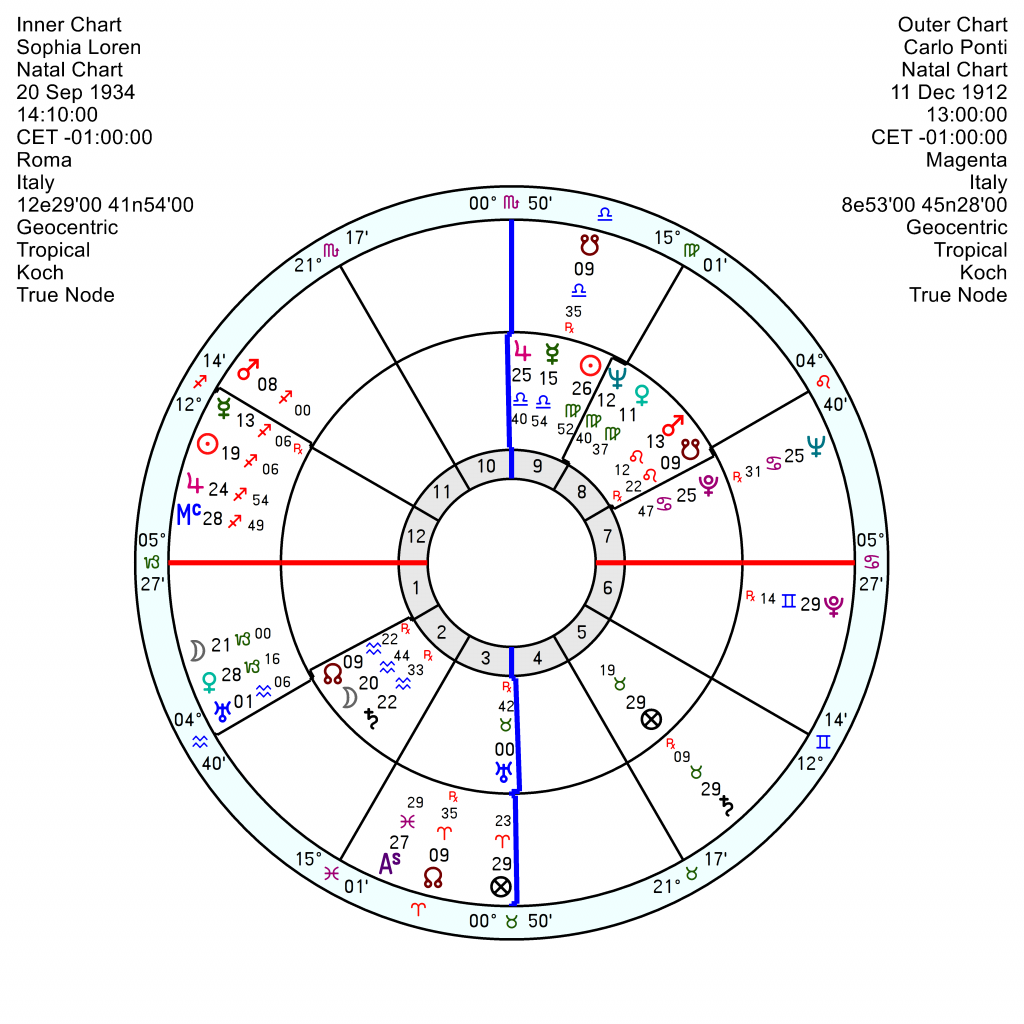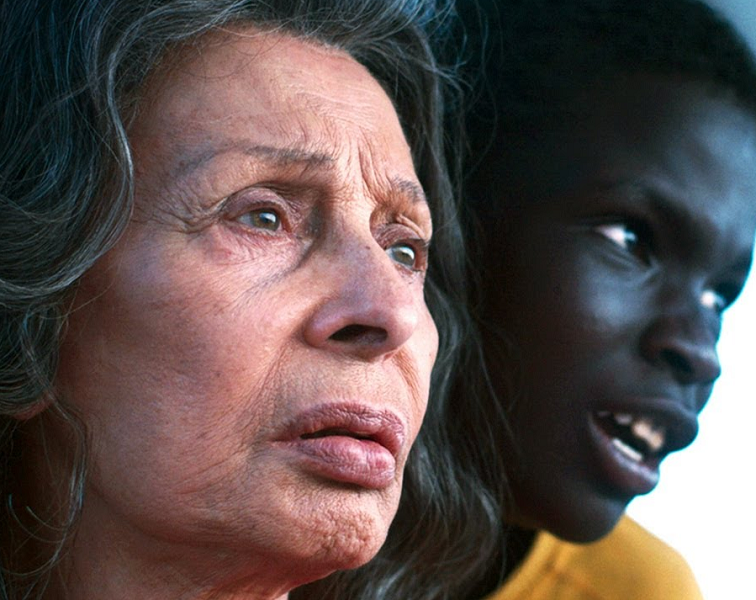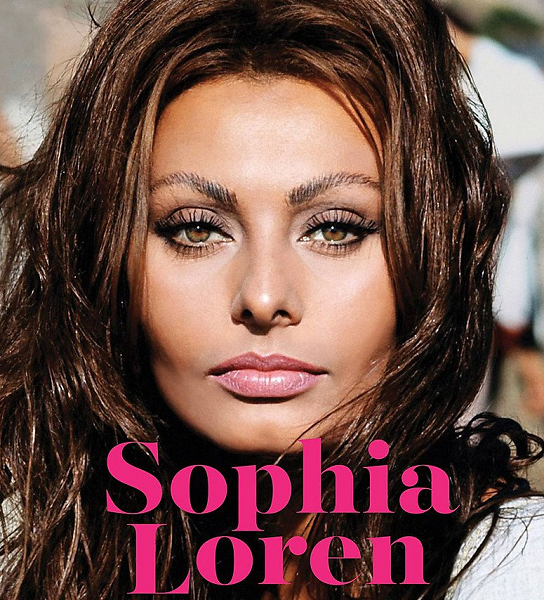


Screen goddess Sophia Loren, one of the last true stars of the movies, has returned to the screen aged 86 in the Netflix The Life Ahead directed by her son Edoardo Ponti. Dispensing with any pretensions at glamour or likeability, she appears angry, defeated and cynical as Madame Rosa, a former sex worker and Holocaust survivor, who looks after the children of “working women”.
Sophia’s life started in the unlikely beginnings of a Rome home for unmarried mothers. By the time she was eight, she, her mother and sister were starving, hiding from air raids in a rat-infested train tunnel, full of “sickness, laughter, drunkenness, death and childbirth”. Her mother was a beauty and Sophia started on the beauty pageant circuit at 15, moving into bit film parts until eventually she was discovered by Carlo Ponti, twenty years her senior, whom she eventually married, produced two children and stayed with throughout his life.
She says her most important teacher was Vittorio De Sica who directed her breakthrough film, The Gold of Naples in 1954 which started her 13-film collaboration with Marcello Mastroianni and, eventually, a career in Hollywood where she landed speaking no English.
She was born 20 September 1934 2.10pm Rome, Italy and has a far-travelled 9th house Virgo Sun with a lucky, successful Jupiter conjunct her Midheaven in a determined and confident square to a 7th house Pluto. Her screen presence was never less than intense thanks to her Pluto and co-stars like Richard Burton remarked on her intelligence. Her Jupiter opposes a domestically-unsettled 4th house Uranus squaring onto her Pluto – she would be controlling and secretive, but also able to push back boundaries.
She has an Aquarius Moon conjunct Saturn opposition an 8th house Mars in Leo – a hint of her hard beginnings and the lifelong obsession with poverty it left behind. In addition to Mars she also has Venus and Neptune in the 8th, giving her the film-star knack of projecting an aura.
Carlo Ponti, 11 December 1912 1pm Magenta, Italy, also had successful Jupiter on his Midheaven, in his case in Sagittarius with, also like her, a packed 9th house in his chart – good at communication and travel. His Moon Venus in Capricorn would connect with her Virgo Sun. His money-minded Saturn in Taurus was square her Moon which is less than ideal, though her Moon Saturn would be acclimatised to the cool, materialistic and workaholic Saturnine energies. Her Sun fell on his Descendant which is ideal for a relationship with her Jupiter in his 7th as well.
He was more of a behind-the-scenes support for her; though his Pluto in Gemini opposition Jupiter was trine/sextile her Midheaven so he’d be instrumental in making her career a success.
Both children, Carlo a conductor, and Edoardo have prominent Jupiter in their charts making for gilded lives.

Sophia has always been my favourite female “Old School” movie star, by far. A truly remarkable and versatile actress, when given material, too. And obviously, I adore her resilience, given how truly horrible her early life and career were, and how badly it might have gone for her.
Astrologically, I think she is another example of an Aquarius Moon with problematic and possibly scarring relationship to their mothers, and in her case, even grandmother. That her grandmother wasn’t serving just maraschino to GIs at the living room of Pozzuoli home she grew up at is an open secret in Italy, so she probably was at least exposed to things she shouldn’t have been at a very fragile age. And her mother Romilda had a reputation, well documented in official memoirs of Italian Film Industry insiders, for being pushy even for, at time, generally speaking ruthless Cinecittà stage moms.
I think her saving grace, what probably kept her spiraling to self harm and substance abuse like too many other talented actresses of her youth, is her Libra Mercury/Jupiter trine her Aquarius Moon/Saturn. Obviously not the “warmest” combination, but one that has allowed her to compartmentalize her experience and process it intellectually. Also, a smart one, shown in her career choices starting from trusting Ponti over flashier characters.
Solaia, ‘ not just serving maraschino to the GI’s – I’m sure you don’t mean this maliciously as it was war, she was alone with two girls and had to do what it took – in Mussolini’s Italy – occupied – to survive. I always loved Loren’s strong sense of self – that comes across more than anything else….she has class. She was perhaps seeking her father in Ponti – not surprising in the circs – but agree with you the Merc/Jup benasp the Aq Moon/Saturn grounded her…she could have had anyone she wanted but committed herself and (mostly!) stayed the course….she wanted for her sons what she never had herself – stability. I salute her – still a beautiful woman, with many untold stories……
Solaia, Sophia Loren said that role in 1960 was all her all-time favorite because it reminded her of her roots during the war in southern Italy where she was born.
@Maggie Cassin, no, not malcious. She was obviously a victim. I’m completely having it with her grandmother and mother for exposing her to that environment, though. Running an unlicensed establishment of any sort at a home they were very lucky to have to begin with – Naples area was the most heavily bombarded in Italy, and hundreds of thousands were rendered homeless – was not only “what it took” in that situation, it was profiting. And while GIs were instructed to respect local population, these were already “battle hardened” men, often with PTSD, so very unlucky things happened, too.
I absolutely adore Sophia Lorean – she’s such a marvelous actress and I’m happy that she’s decided to make a bit of a comeback in the film industry.
Sophia Lorean is definitely an icon of the vintage 1950s / 1960s glamour era of cinema along with other talented European actresses like Ursula Andress, Julie Christie, Brigitte Bardot, Lena Lollobrigida, Vanessa Redgrave, and Catherine Deneuve.
Marjorie, thank you for this piece on one of my all-time favorite actresses. Her beauty made many undersetimate her intelligence, acting talent and willingness to take risks with her image. In 1960, she won an Academy Award and the Best Actress award at the Cannes film festival for portraying an Italian woman who, among many, was raped by North African members of the French Army during World War II. It took decades for the French to acknowledge this historical fact. And I cannot forget one of her many films with Mastroianni, another great. It is titled in French Une journée particulière, in which she plays a lonely and frustrated housewife who falls for an attractive neighbor who rejects her because he is gay, while her husband and children are out to see Mussolini jn a parade. American cinema hardly ever reaches that level of excellence.
“Actress award at the Cannes film festival for portraying an Italian woman who, among many, was raped by North African members of the French Army during World War II. It took decades for the French to acknowledge this historical fact.”
To be fair, rape as a war crime at WWII wasn’t really addressed by any part until the early 1990’s, when atrocities of Bosnian War triggered a discussion on this. Italian Governments tended to keep quiet about this, because Italy had regulated, legal brothels known as Case Chiuse well into 1950’s (“Merlin Law”, closing them down, so named after Senator Lina Merlin, only passed in 1958), and Fascist Italy promptly established “field brothels” to all areas they occupied. There also has been discussion about French North African troops in particular taking revenge on Italian civilians for their deeds in Libya, where Fascist regime forced Bedouine farmers out of their homes to make room for settlers in the 1920’s and early 1930’s.
Obviously, this is not excuse, just an example on how rape is weaponized at war. Sending North African troops to Italy under these circumstances shows either incompetence or cruelty from French military leadership. I would think it was the latter, given how French employed their “colonial” forces in general, their approach to this being essentially pure “divide et impara” inherited from Roman Legions (Ostrogoths were employed against other Barbarians, until they stopped playing). Stalin’s Generals did the same, sending troops from areas that were hit the worst by German troops to take Berlin.
I watched a documentary not so long ago where older women who survived these atrocities were interviewed. It was heartbreaking, to this day these poor souls are still clearly traumatised by the events that occurred there. They told of how the Moroccan soldiers (Morocco was a French colony in those days) were told they had two, maybe three days, to do as they wished. Literally given carte blanche. After that they would be punished for whatever they did. Some of these rapists were later held to account, but many weren’t.
Hi,
Can you write about Stella Tennant, the famous model who allegedly committed suicide in December in the Scottish Borders?